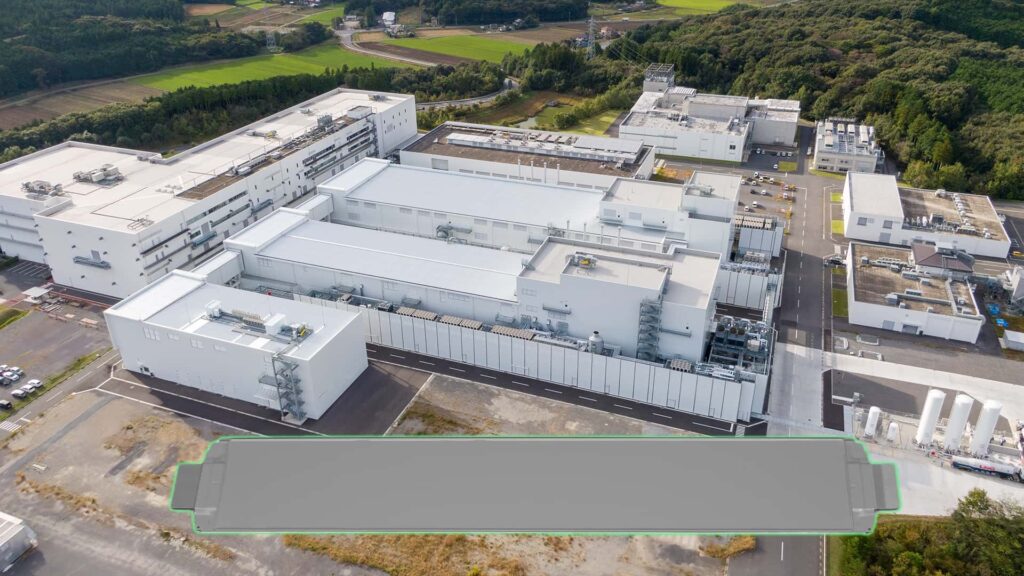Solid-state batteries have long been hailed as the future of electric vehicles, promising increased driving range, faster charging speeds, and potentially lower costs. While many companies have been working on developing these batteries, mass production has proven to be a challenge. However, Honda is determined to become a key player in the solid-state battery game.
The Japanese automaker has constructed a demonstration line at its facility in Sakura City, Tochigi Prefecture, Japan, with a floor area of nearly 300,000 square feet. This demonstration line is equipped with all the necessary machinery to begin the verification phase of each production process. The goal is to identify any potential issues and streamline the manufacturing process before ramping up production.
Honda has set a target date of January 2025 to start producing actual batteries on this demo line. These initial batteries will not be used in electric vehicles but will serve as a testing ground to refine the manufacturing process. The company aims to address any challenges and optimize the production before moving on to full-scale manufacturing in the coming years.
The first Honda electric vehicles equipped with all-solid-state batteries are expected to hit the market in the second half of the 2020s. This timeline aligns with Stellantis’ plan to introduce a demonstration fleet of Dodge Charger EVs with Factorial’s semi-solid-state batteries by 2026. With advancements in battery technology progressing rapidly, it is becoming increasingly likely that consumers will soon have the option to purchase electric vehicles powered by solid-state batteries.
Honda’s commitment to solid-state battery development underscores the company’s dedication to accelerating the transition to electric mobility. By investing in advanced battery technology, Honda aims to offer consumers more efficient, sustainable, and cost-effective electric vehicles in the near future. As the automotive industry continues to evolve, Honda is positioning itself as a leader in the electrification revolution. The world of technology is constantly evolving, and one of the most exciting developments in recent years has been the rise of artificial intelligence (AI). AI is a branch of computer science that aims to create machines that can perform tasks that typically require human intelligence, such as speech recognition, decision-making, and problem-solving.
One of the key areas where AI is making a significant impact is in the field of healthcare. AI has the potential to revolutionize the way we approach healthcare by improving diagnosis accuracy, predicting patient outcomes, and personalizing treatment plans.
One of the most promising applications of AI in healthcare is in medical imaging. AI algorithms are being developed that can analyze medical images such as X-rays, MRIs, and CT scans with a level of accuracy that rivals that of human radiologists. These algorithms can detect abnormalities and diseases at an early stage, allowing for faster and more accurate diagnosis.
AI is also being used to predict patient outcomes by analyzing vast amounts of patient data. By analyzing factors such as medical history, genetic information, and lifestyle choices, AI algorithms can predict the likelihood of a patient developing a particular disease or experiencing a certain outcome. This information can help healthcare providers tailor treatment plans to individual patients, leading to better outcomes and more personalized care.
In addition to diagnosis and prediction, AI is also being used to personalize treatment plans for patients. By analyzing a patient’s unique characteristics and medical history, AI algorithms can recommend the most effective treatment options for that individual. This personalized approach to healthcare can lead to better outcomes and reduced healthcare costs.
While the potential benefits of AI in healthcare are immense, there are also challenges that need to be addressed. One of the biggest challenges is ensuring that AI algorithms are accurate and reliable. It is crucial that these algorithms are thoroughly tested and validated before being deployed in a clinical setting to ensure patient safety.
Another challenge is data privacy and security. AI algorithms rely on vast amounts of patient data to make accurate predictions and recommendations. It is essential that this data is protected and used in a responsible and ethical manner to ensure patient confidentiality and trust.
Overall, the potential of AI in healthcare is vast, and the possibilities for improving patient care are endless. By harnessing the power of AI, healthcare providers can revolutionize the way we approach healthcare, leading to better outcomes, lower costs, and more personalized care for patients around the world.

